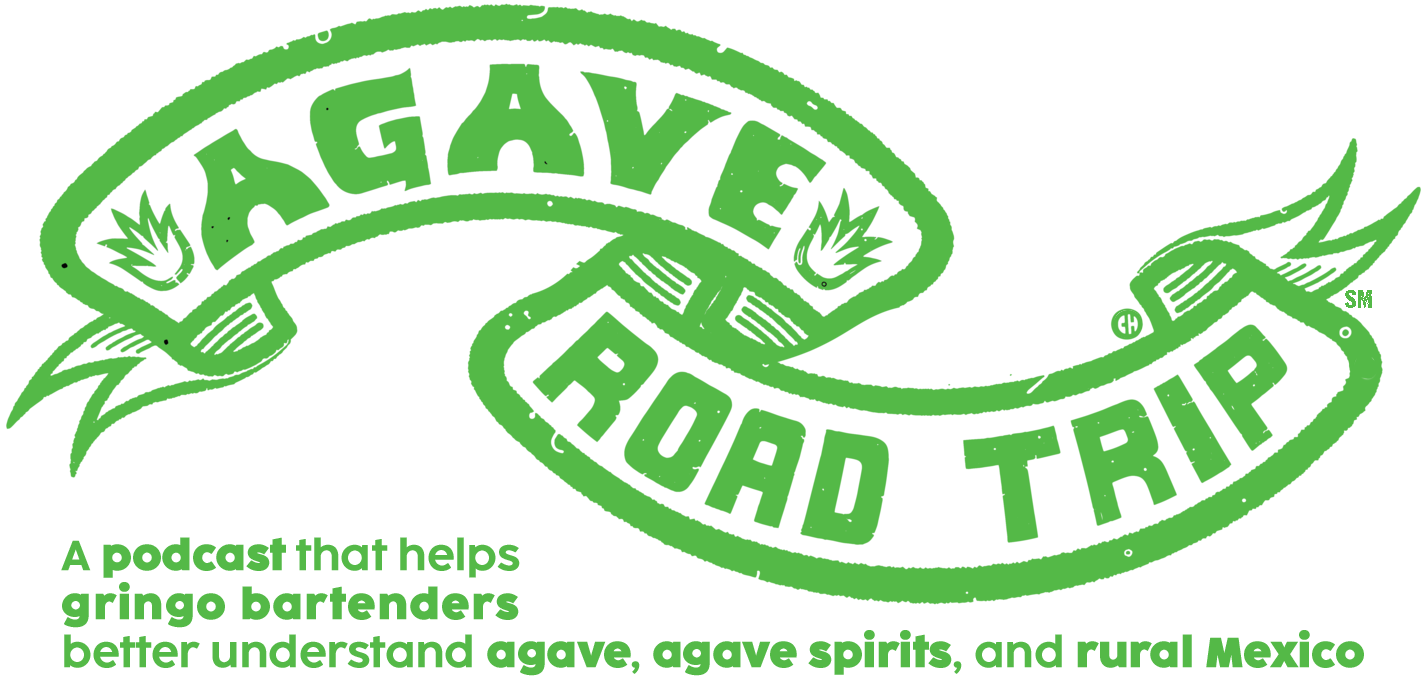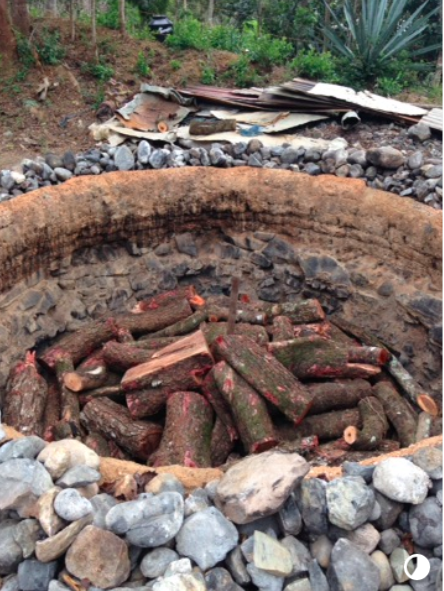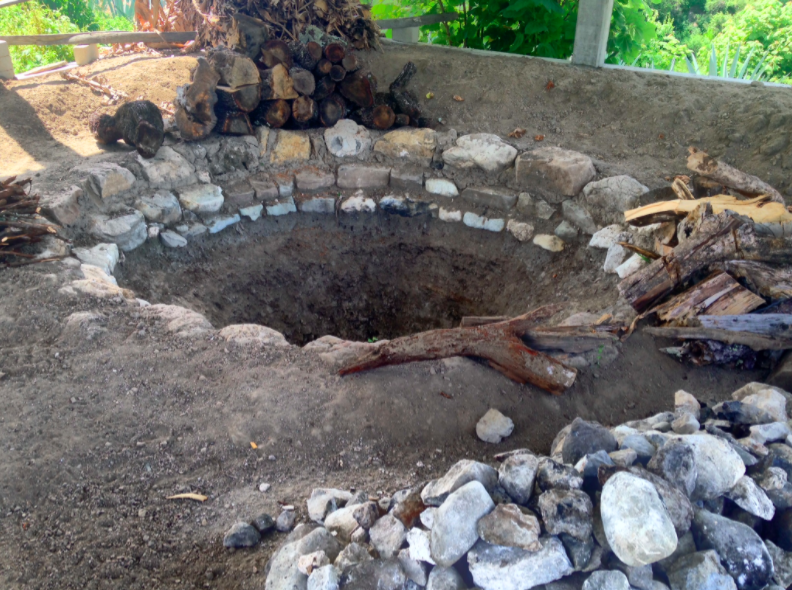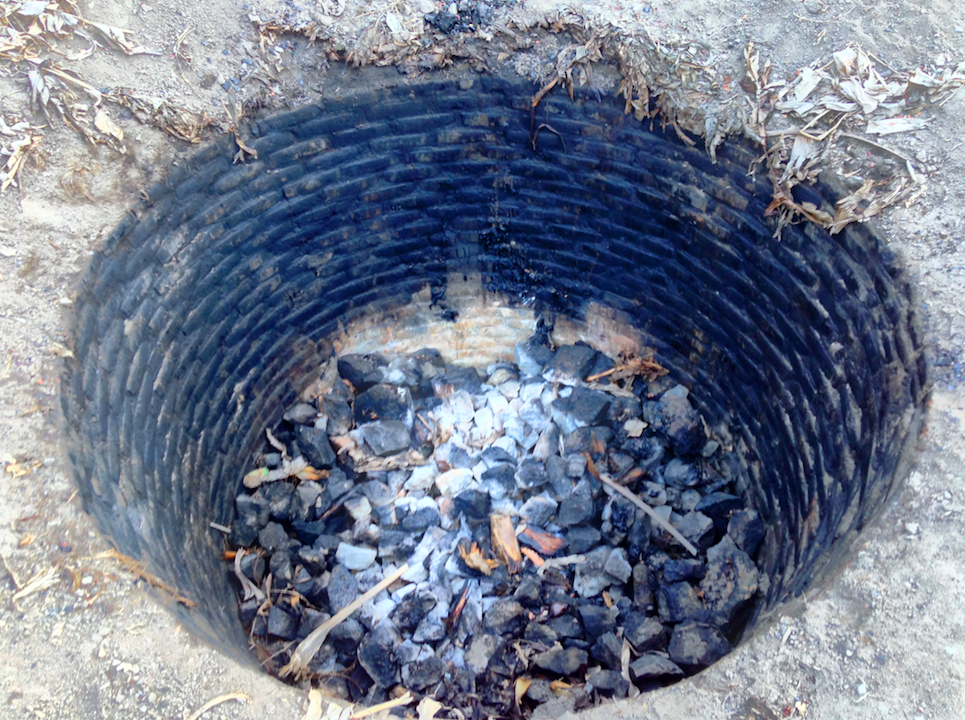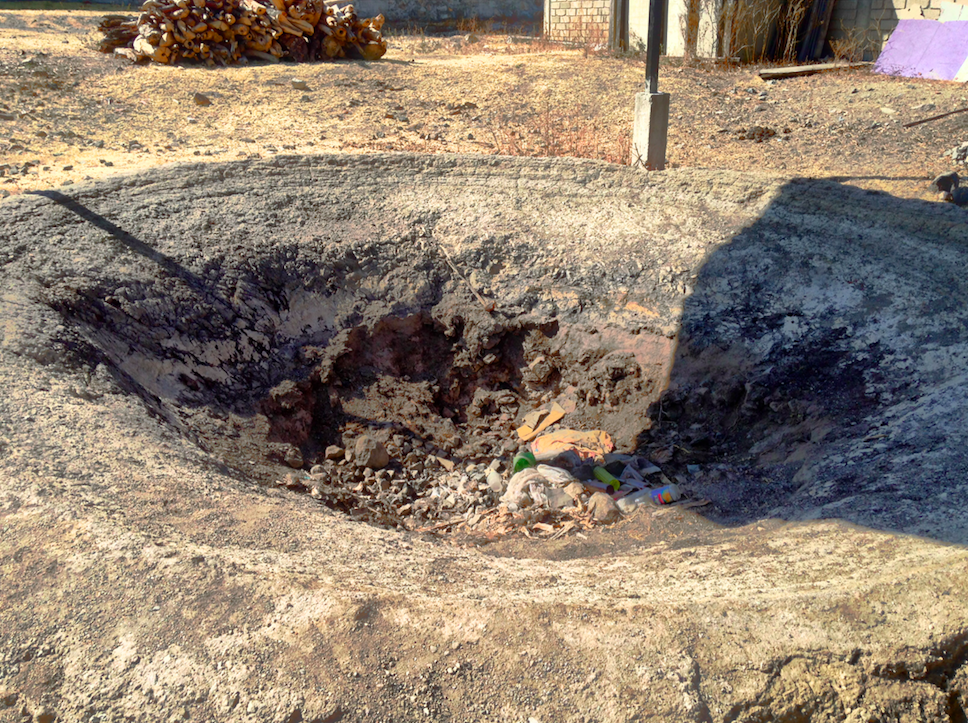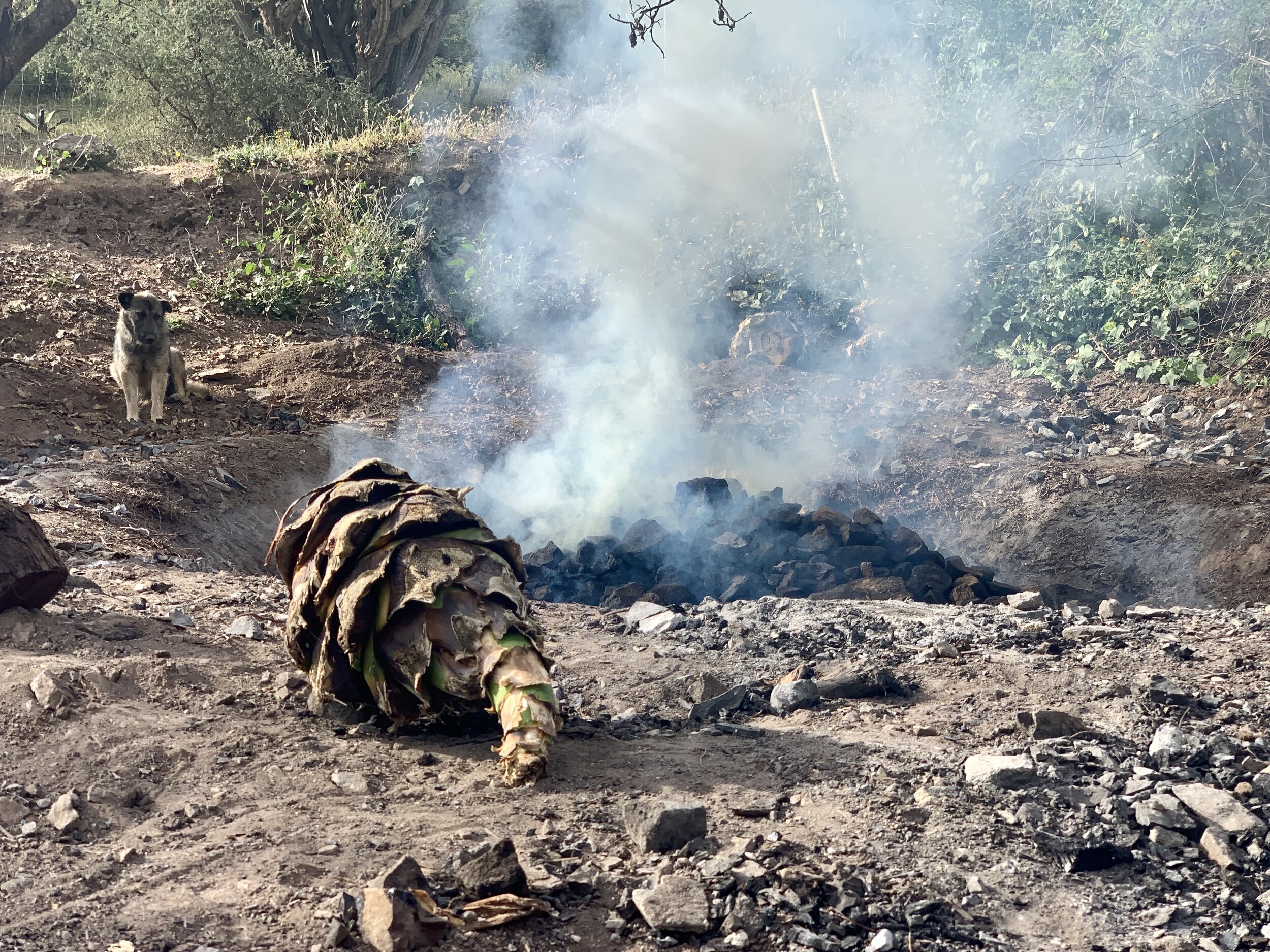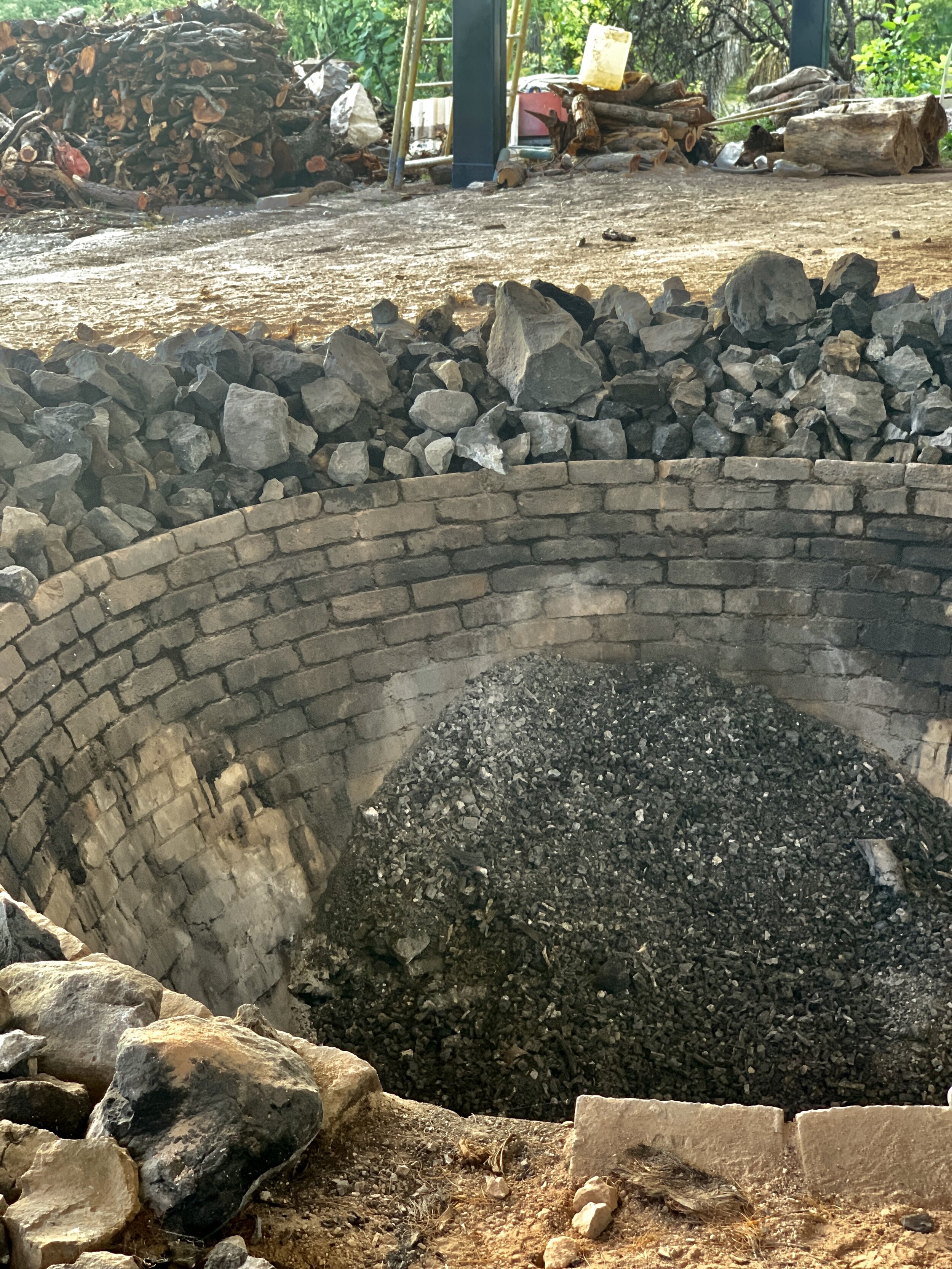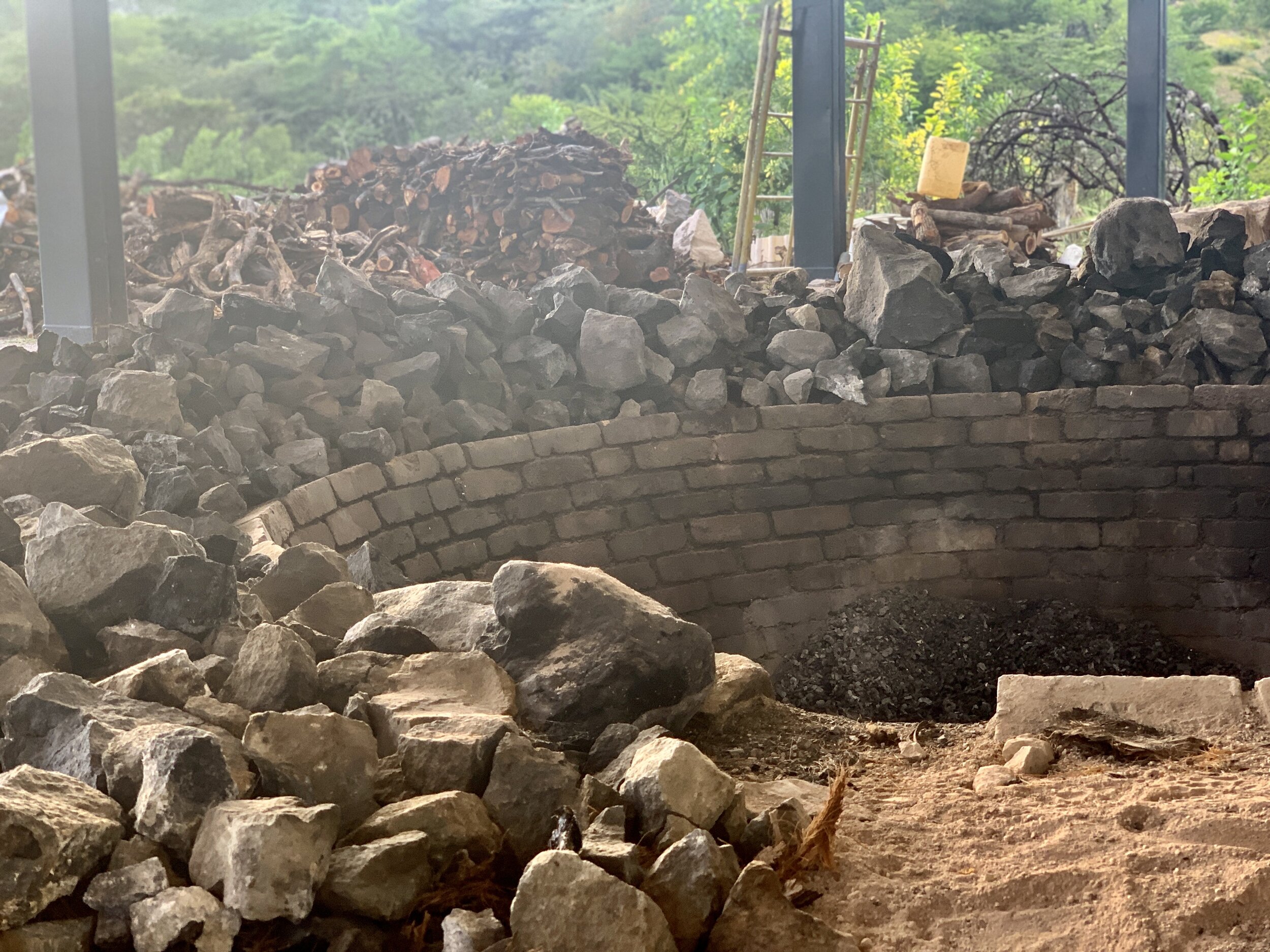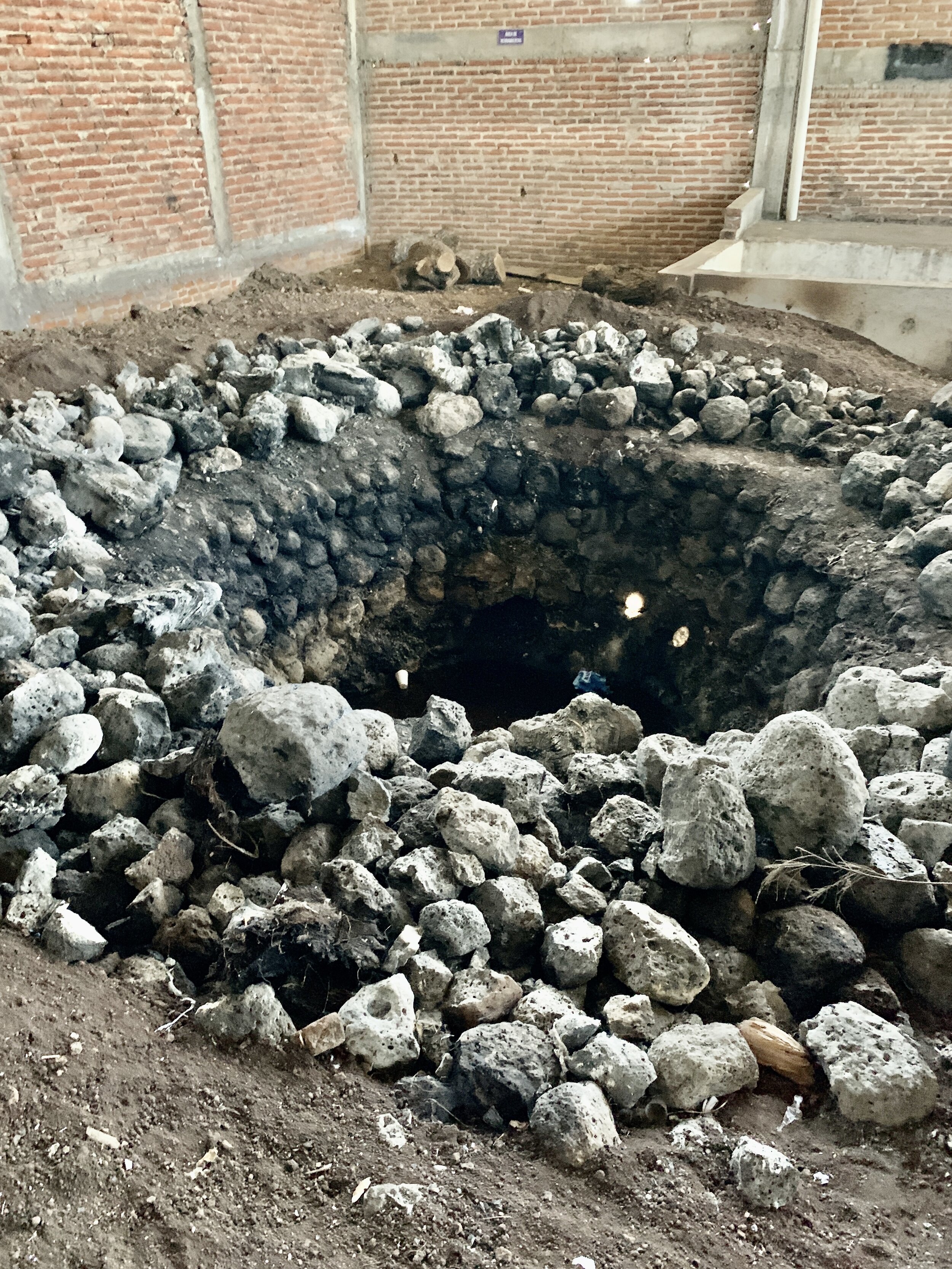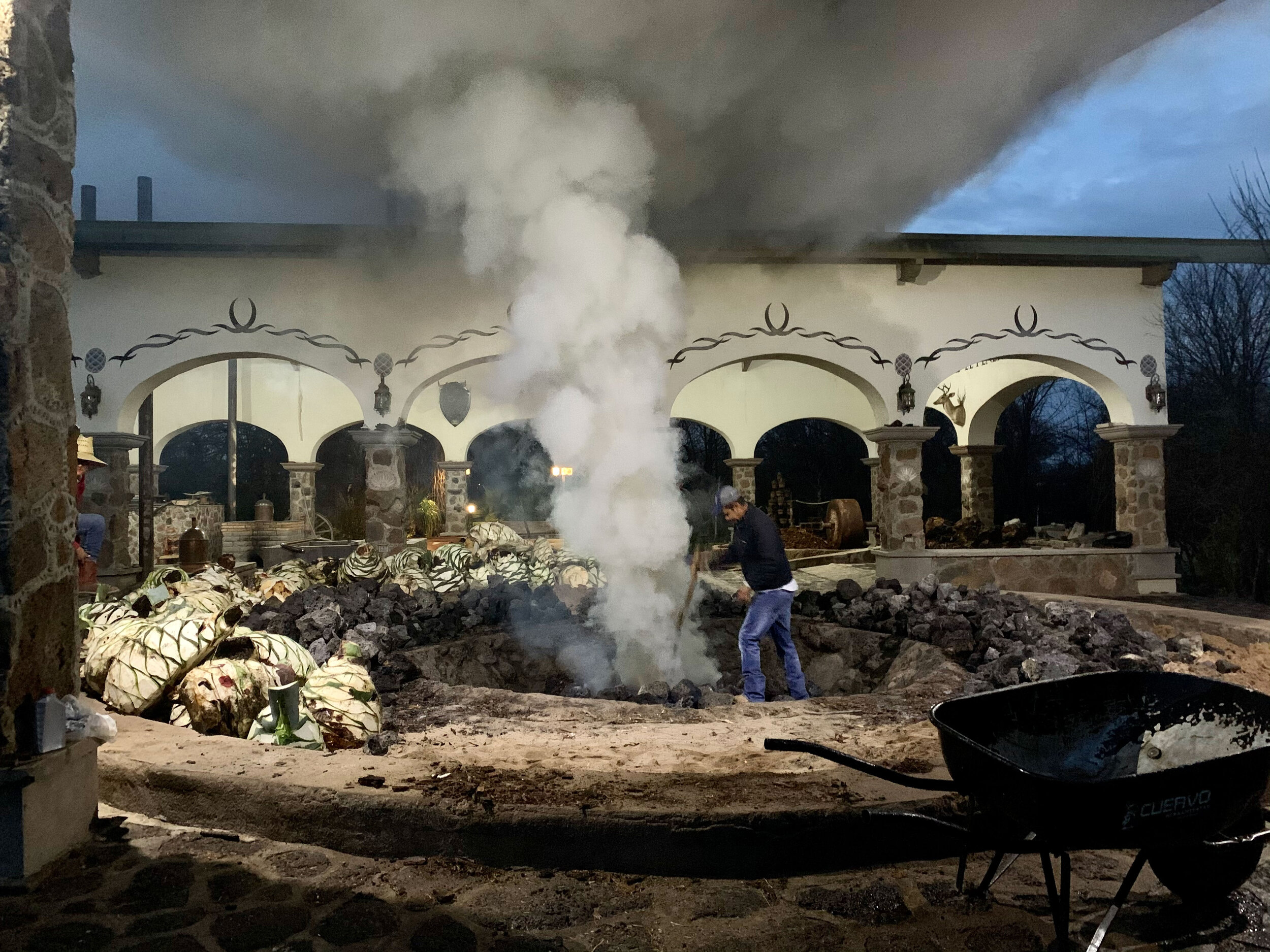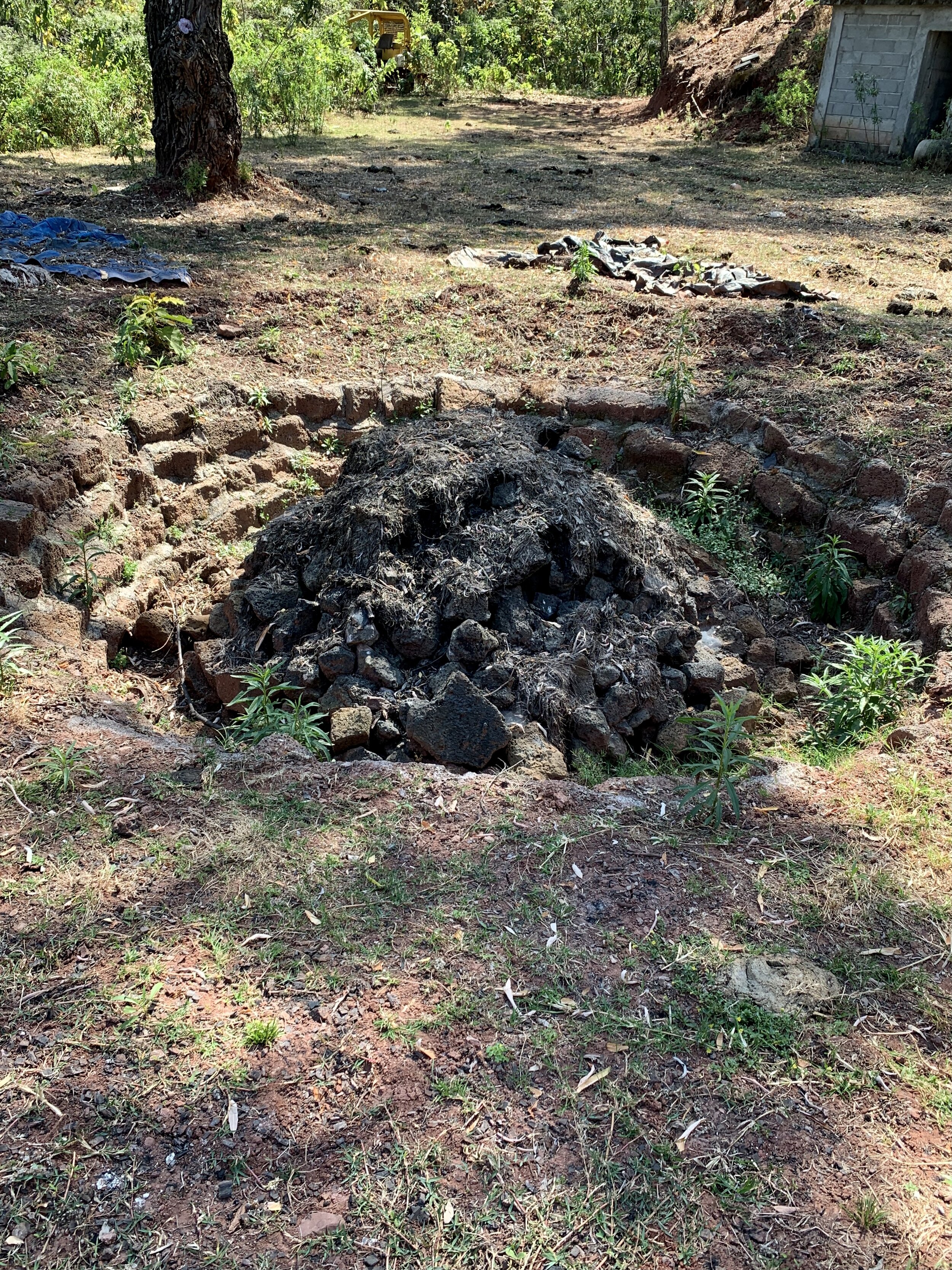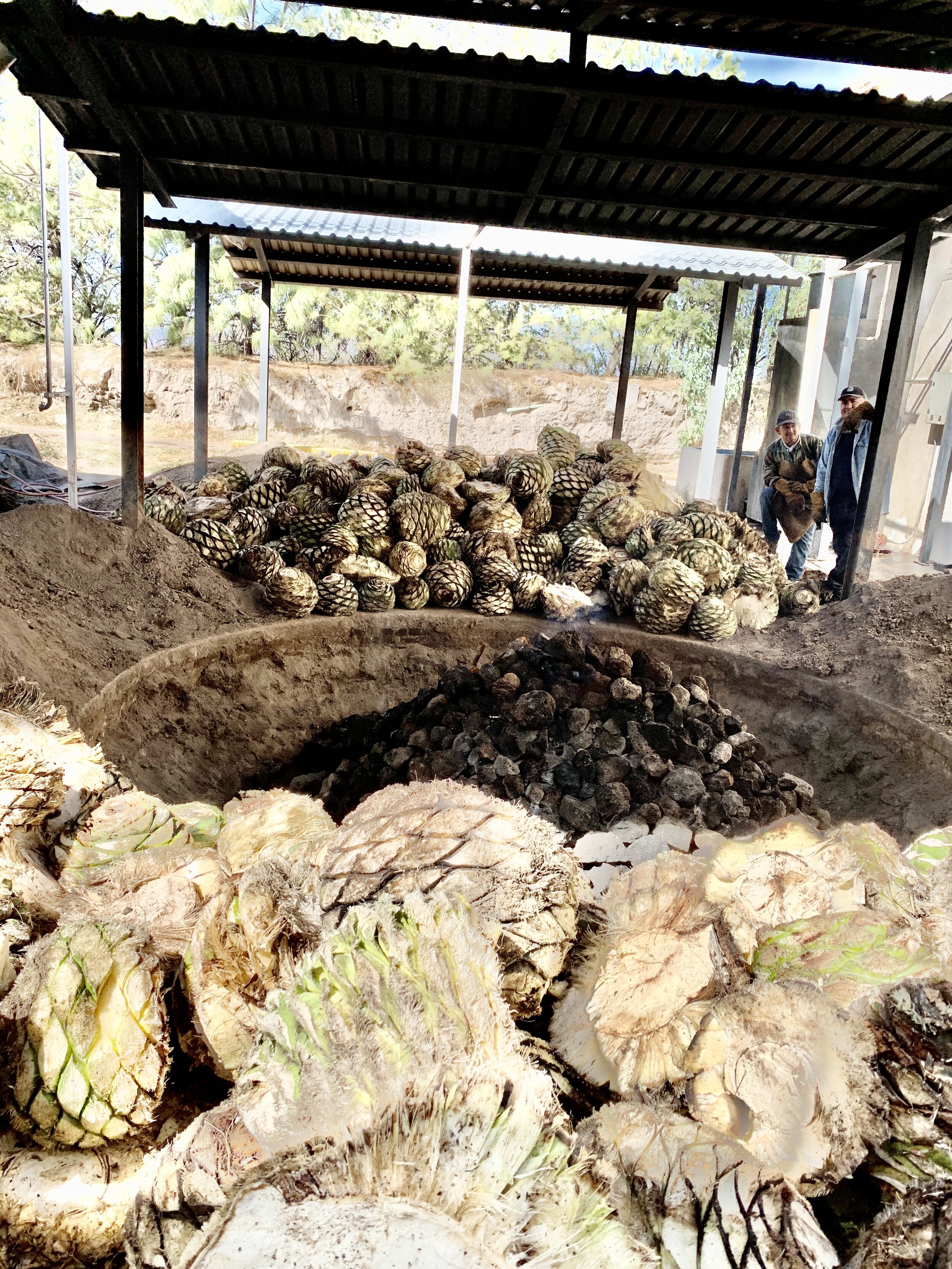What’s Smoke Got to Do with It?
Before you can ferment those agaves to make alcohol, you’ve got to convert the carbohydrates into sugars. One way to do that is cooking. And one way to cook the agave is underground. And, yep, there are lots of ways to do that, which leads us to the question, Do mezcaleros need to know how many grams of smoke per kilo are in their cooked agave? Find out in “What’s Smoke Got to Do with It?” — the latest episode of Agave Road Trip!
This episode of Agave Road Trip is brought to you by Ojo de Tigre Mezcal Artesenal. Ojo de Tigre is produced using artisanal practices and two types of agave – because two agaves are better than one. Easy on the land and easy on your wallet, Ojo de Tigre is mezcal for all. Learn more at ojodetigremezcal.com
This episode of Agave Road Trip is also brought to you by Diageo Bar Academy, who wants you to know that USBG Presents World Class Sponsored by Diageo is taking place March 29th through April 6th, 2021. Register now to gain access to all of the competitions and behind-the-scenes stories. Visit https://bit.ly/3fBIhx8.
Agave Road Trip is a podcast that helps gringo bartenders better understand agave, agave spirits, and rural Mexico. It’s hosted by Lou Bank and Chava Periban.
Above and to the left are some of the hornos (in-ground ovens that can be used to cook agave) I’ve come to know. And you’re probably thinking … Okay, but tell me about them! That’s fair. But we have more horno in next week’s episode. So come back next week, check that episode page, and you’ll get more info and even more hornos!
Our quote this week comes from German Guitierrez of Mezcal Lagrimas de Dolores. The fuzzy ears here belong to his German shepherd, Xivita. Xivita is so blessed, she is welcome in the church.
Another shot of Xivita in the church. Be patient — we’ll get to German in a second.
There he is! German Guitierrez of Mezcal Lagrimas de Dolores.
Episode transcript
Lou: So no one ever told me I had to keep my distance from the ROTC guys marching in front of me, and they suddenly stop [SOUND OF TEXT MESSAGE ARRIVING] Oh, hang on, let me answer these.
Chava: Sure.
Lou: [SOUND OF TEXT BEING SENT] Okay, so these ROTC guys marching with their rifles start marching backwards, and begin hitting my hood, and stream— [SOUND OF 2 TEXT MESSAGEs ARRIVING] Wait, sorry.
Chava: You got some side hustle interfering with this side hustle, Lou? [SOUND OF TEXT BEING SENT]
Lou: No, it’s … well, friends are texting me all the time now when they’re at a bar, asking me which mezcal they should order.
Chava: Friends of yours? They don’t know what they want already?
Lou: Some do, but for some … ordering mezcal has gotten as complicated as ordering wine.
Chava: That sounds intimidating.
Lou: Right? And ordering great mezcal shouldn’t be intimidating.
Chava: You know that’s the tag line for Ojo de Tigre Mezcal Artesenal, right, Lou?
Lou: I know that Ojo de Tigre is the Mezcal for All.
Chava: That’s another tagline, Lou.
Lou: Maybe it is, Chava, but two agaves are better than one, and Ojo de Tigre is made with both espadin and tobala.
Chava: Has Ojo de Tigre taken over your soul, Lou?
Lou: No but Ojo de Tigre mezcal is taken from the soul and expressed with the hands.
Chava: Now I’m feeling a bit intimidated, Lou. How about we just have a copita full of Ojo de Tigre and pick this up in the morning?
Lou: Ojo de Tigre Mezcal Artesenal – it’s easy on the land, and easy on your wallet!
Chava: I’m going to unplug Lou now. If you want to learn more about Ojo de Tigre, visit ojo de tigre mezcal dot com
Lou: [FADE OUT] Your mezcal should be as full of character as you are! Ojo de Tigre Mezcal Artesenal: Light on smoke, full on character!
In addition to Ojo de Tigre Mezcal, this episode of agave road trip is also brought to you by Diageo Bar Academy, sponsor of World Class, the international bartending competition. The World Class US Finals are going on right now, courtesy of our friends at the USBG and Diageo.
When they asked us to include an ad on our podcast, I thought, Okay, it could be funny if I talked it up like it was this, you know, fight to the death between bartenders. A sort of “in a world where people are thirsty” kind of thing. And then Chava would chime in with his reasonable tone, telling the true story.
And that seemed funny to me.
But, man, it’s been a hard, long year, for everyone. But especially, I think, for my friends in hospitality – first, yes, because … where di the restaurants go? Where did the bars go? But also …
Over the last several years, leading tastings of agave spirits on behalf of my not-for-profit SACRED, I’ve met a lot of bartenders and waitstaff. And time and again, I’ve been impressed with how many of them – how many of you – are in this because you are hospitable, because you want to make the day better for perfect strangers.
And this year? You’ve not been able to.
So all joking aside, if you’re listening to agave road trip because you work a bar or work tables … or in a kitchen, in a hotel … any kind of hospitality, first … I’m sorry for the hard year you’ve had.
Second, maybe you want to check out the World Class US Finals. Fifty of the top bartenders in the USA are competing to represent our country at the global finals in Madrid in July.
You can watch it online, for free, if you’re 21 or older. You’ll see stories of people just like you, talking about how they, just like you, try to make the perfect drink, the perfect evening, the perfect moment for those perfect strangers … just like you.
Register now to gain access to all of the competitions and behind the scenes stories. Visit DIAGEO Bar Academy dot com. That’s D-I-A-G-E-O Bar Academy dot com.
I look forward to watching with you, online, and drinking with you, when we’re past all this hard stuff.
Lou Bank (02:32):
I am Lou Bank.
Chava Periban (02:33):
I am Chava Periban.
Lou Bank (02:33):
And this is Agave Road Trip, the podcast that helps gringo bartenders better understand agave, agave spirits, and rural Mexico. Chava, what are we talking about today?
Chava Periban (02:45):
Well, I want to make a correction of something. We got something wrong in season one.
Lou Bank (02:54):
We had nothing wrong in season one.
Chava Periban (03:00):
I just want to make something a little bit more specific because when we spoke about hornos and tepata and cooking the agave, which is one of the most extravagant and difficult things to do in agave spirits. But instead of talking about agave, you decided to talk about pork -- cooking pork.
Lou Bank (03:14):
[laughter] hang on a second. I decided to talk about it? I believe it came up in reference to you saying nothing else is cooked this way, buried underground. And then I brought up an example that you were unaware of. And then you got into the example. Now, is that my fault that you got into it? Am I a distraction? Is that what you're saying?
Chava Periban (03:35):
No, actually, it's my stomach. It's my fault. I fell hungry at the moment. It's like, let's talk about—.
Lou Bank (03:43):
You realize what you're doing, right? The exact same thing we did in the season one episode and you're heading down that path again. So, what do you want to bring up as we're talking about the cooking of the agave in the horno—in that underground, stone-lined earthen oven?
Chava Periban (03:58):
Well, I want to talk specifics because I think that there's not just one way of cooking it underground. Mexico is a really big place. There's many States and many traditions of making agave spirits. And I think a lot of that diversity can be traced down to the cooking of the agave.
Lou Bank (04:16):
That's really interesting. So not only are there different ways to cook agave, but you're talking about different ways of cooking it, even when that way is cooking it in an underground earth oven?
Chava Periban (04:28):
Exactly. And I will say you can trace that by different regions. I think different States and different traditions have preferred flavors and they try to get those flavors starting from the cooking of the agave. So I would like to start with a quote we have from German, just to open this conversation, and then we'll try to get as specific as possible.
Lou Bank (04:50):
Okay. Let's listen.
Speaker 4 (04:52):
So we cook our agave using encino and volcanic rock. Encino's a type of oak. and this is true for all of the producers that we work with, except for one which uses mesquite, because there is no encino around. The difference in wood, in the cooking process is actually very important because different woods act differently. They burn differently and encino tends to burn a lot longer and it's less smoky. It's a little bit more nobel and it gives a wonderful smell as well. Whereas mesquite is a lot harsher, so it burns faster and it's a lot smokier as well. It obviously depends on what type of mezcal you like, or maybe you like the fact that there's that little difference in different mezcals. But it's very important to know what you're using. The vinatero will always know, the wood that they're using.
Lou Bank (05:53):
Okay. So thank you, German Gutierrez from Lagrimas de Dolores,. We should give him credit, right., for giving us this quote to talk around.
Chava Periban (06:01):
Yeah. And the he is distributed the United States. You can find his spirits where you guys live. Isn't that true?
Lou Bank (06:09):
That is correct. Well worth seeking those spirits out. So, okay. You know, my first reaction and ... you know, this is, I mean, this is true of me in all circumstances. My first reaction is to question what he said,
Chava Periban (06:22):
Oh Jesus, okay. Let's do this. Lou, what are your questions? get aggressive
Lou Bank (06:27):
Okay. Okay. Sure. So I don't understand why it would matter if the wood burns longer, if one kind of wood burns longer than another kind of wood, because in essence, you want the wood to go out. It's rarely going to be completely out. So why does it matter if it burns longer? It seems to me like you heat up your horno — your oven — faster with one wood than you do with the other. Uh, but that's just a matter of time, right?
Chava Periban (07:00):
Well, it's more a consequence. So he says that mesquite is smokier than encino, and the—
Lou Bank (07:09):
Wait. You're saying that the long burn ... the length of the burning has to do with the smoke?
Chava Periban (07:12):
Exactly. Because the oak wood it's so much denser. Therefore—
Lou Bank (07:16):
You said oak. Encino is oak? Correct?
Chava Periban (07:30):
The oak is way denser, therefore it's going to take longer to consume. You have more biomass per volume, right? So it just takes longer. I've never done grilling in my life. I'm not from the Norte. But my understanding is when you're making carne asada, when you're like doing a steak, you have different types of charcoals, right? And different types of charcoals burn for longer, they give different aromas. There's a whole dynamic in the geeks that do steaks in choosing their charcoal.
Lou Bank (08:02):
You're saying steaks, but really you mean barbecue, and you wouldn't be wrong saying that, but it's not grilling, it's, it's smoking. But the fire is always going throughout. It's a different way of cooking. I don't want to get down that rabbit hole of cooking again. But my point is just simply, it's a different way to heat in the underground oven. Again, you're primarily using the heat that is now concentrated in the stones, in that oven. And you're using the steam, if you happen to be one of those places where you pour water into the horno after you've covered it up.
Chava Periban (08:46):
Yeah. I think that with a lot of the guys that I've spoken with and when I used to be part of the tepata — oak, it's so much easier to predict because you have a big chunk of wood, and you're sure it's going to becoal for a longer period of time. Whereas with a mesquite, because of how fluffy it is, it varies drastically. So it might go off before it builds all that heat into the stones. You know, he says the word noble, like oak is more noble. And when we say that in Spanish it means that it's better behaved. It's more predictable. So I think that's what he's trying to say about the fact that it burns for longer.
Lou Bank (09:30):
But hang on a second. So now you've also said something that I think contradicts what he had said. You just said that the oak is more dense. And so it's going to burn longer, which means to me less efficiently, which means it should in theory, give off more smoke.
Chava Periban (09:47):
No, no, no, no, no, no, no. It's completely the other way around. It burns a lot better because it's denser. So more efficiently, way more efficiently. Yeah, yeah, yeah.
Lou Bank (09:57):
Even though, okay. It's going to last longer. That's really interesting. So the more efficient process of burning that wood — the encino, the oak — is going to create a longer burn, not a faster burn.
Chava Periban (10:10):
Yes. And the thing is because it's denser, it's going to be harder for a longer time. So you're going to have coal for a longer time with doesn't burn very efficiently when it's cold. So if you have something that is not very dense, it's going to burn a lot of it while it's cold. Whereas if it's denser, it's going to be burning for longer when it's hotter.
Lou Bank (10:31):
Oh, that is fascinating.
Lou Bank (10:33):
I don't know if that makes any sense,
Lou Bank (10:35):
you know, it does. I mean, I have to stop and think about it, which doesn't surprise you. I'm sure. But it really is. It's a fascinating point. It's not an easy thing. [inaudible]
Chava Periban (10:46):
I spent a lot of time researching something that are called pellet burners. I think they use them up there where you guys live.
Lou Bank (10:53):
I hate pellet burners, pellet burners are for cheaters.
Chava Periban (10:56):
What I'm trying to say, it's those guys have spent millions of dollars researching the dynamics of different biomass to burn. So, you know, they make those pellets from sawdust. So they choose specific types of sawdust, the amount of resin that is in there. Like it's a crazy area of research. So let's say that in the agave spirits world, they've done the same research just from a more empirical perspective.
Lou Bank (11:44):
Okay. So you're saying there are different methods for cooking in the horno. Are you literally drilling it down to just, the different method is the different wood? Or is there something else?
Chava Periban (11:55):
Wait, wait, there's something else that I want to add to the woods. We're not graduating from this thing right away. I'm sorry, Lou. I have more questions. There's more things. So what I'd like to think about this it's, you know, in scotch you have different degrees of peating the malted barley, or no peat whatsoever, whatsoever. But if you,
Lou Bank (12:16):
Well, I think it's helpful to explain what that means, peating.
Chava Periban (12:19):
Yeah. Right. I guess. But everybody in America knows the difference between Laphroaig and Macallan. Right?
Lou Bank (12:28):
No, most people have no clue the difference, but in essence, you're talking about two different kinds of scotch, right? And scotch is distilled from fermented malt. And the malt specifically used to make scotch comes from barley. And what you're doing is you're germinating the barley just a little bit. You would get it moist, that little piece of barley, that little grain of barley, you get it a little bit moist and it tries to reproduce a new barley plant and shoots up a little stalk — a tiny little baby stalk — that wants to turn into a seedling of barley, right? At that point, you say, screw you, barley. And you stop that process by heating it up. Now the heat sometimes is made by burning peat, which is in essence moss
Chava Periban (13:11):
That has an amazing smoke that produces some delicious, beautiful flavor to the scotch. And Laphroaig...
Lou Bank (13:22):
A very specific kind of smoke, which you're saying is delicious. It does not work for my palate. I'm not a big fan of the peat.
Chava Periban (13:30):
You are a defective human, Lou
Lou Bank (13:34):
Wow. So judgemental,
Chava Periban (13:36):
I'm sorry. I'm sorry. I'm sorry. Actually, I take that back. Lou. You are perfect. Yeah, no, but anyway, so they've done plenty of research there as well. And if you are a maker, you can go to the guy that made the malts, the barley and tell him, I want my barley to have around 50 particles per million of peat. And they understand the degree of smokiness that means. In essence, what they're doing in the agave spirits world is the same with some, let's say more relaxed ranges. I claim that one day., if there's a lot of money behind it, we might get to that point where you say like, I want my agave spirit to have some degree of smokiness in the oak direction or in the direction
Lou Bank (14:26):
Feels like genetic engineering. It feels like the opposite of art to me when you start relying on these tools that go well beyond the five senses. And I'm not saying that it's wrong, but I am saying it's not the stuff that I love about these agave spirits. Again, I'll always go back to Zignum...
Chava Periban (14:53):
Wait, wait, I will say this is expanding your five senses. You wear glasses. I wear glasses. Do you like to live in a world where you couldn't use glasses? Just because you want to depend only on the five senses that God gave you?
Lou Bank (15:07):
Yeah, actually this morning, when I went on my walk, I went literally without my glasses, because my glasses annoyi me. Now, there are times at which I need my glasses, but does Victor Ramos need to know how many grams of smoke are in his agave? I would contend he does not. He has a sense of it based on what comes out of the oven and what it tastes like. And he's experienced it using just his five senses and that's his barometer and that's all the barometer he needs in order to produce true art.
Chava Periban (15:41):
I think that if they were to be given the option to know more, to make more decisions in predictable ways, maybe they would like it. You don't know if you've never asked them, they've never had the option. That's another part of it.
Lou Bank (15:56):
Well, you know, I would agree with you that some absolutely will want that. And I would contend that others would absolutely refuse that. I mean, I've never had that specific conversation with any mezcalero, of course, but I've had plenty of conversations with them about introducing technology to make it easier for them to ferment and distill these spirits and a vast number of them time and again tell me they're not interested.
Chava Periban (16:25):
I'm not saying easier, this may be way more complicated actually, to be able to really formulate an amount of smoke into the agave could be infinitely more complicated than the way they're used to
Lou Bank (16:41):
You know, Chava, we're already past the point we should be. So I think what we should do is wrap up this episode and do a part two on this because of the other issues that we want to bring up.
Chava Periban (16:54):
The first thing we were supposed to talk about took over the whole episode. Thank the Lord, in a way. So let's wrap this up and talk more on the next one.
Lou Bank (17:03):
Sounds good. Catch you in a second.
